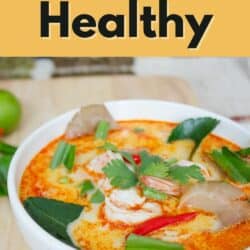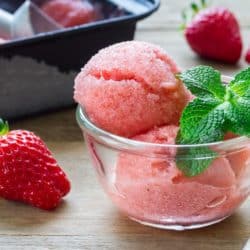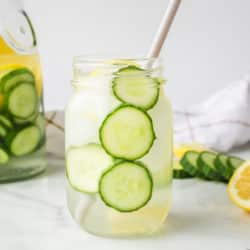Is Thai Food Healthy (Nutrition Pros and Cons)?
In this blog post, I’ll review the question of whether Thai food is healthy or not? Find out what this cuisine’s nutrition pros and cons are, plus some of the best healthy Thai food dishes.
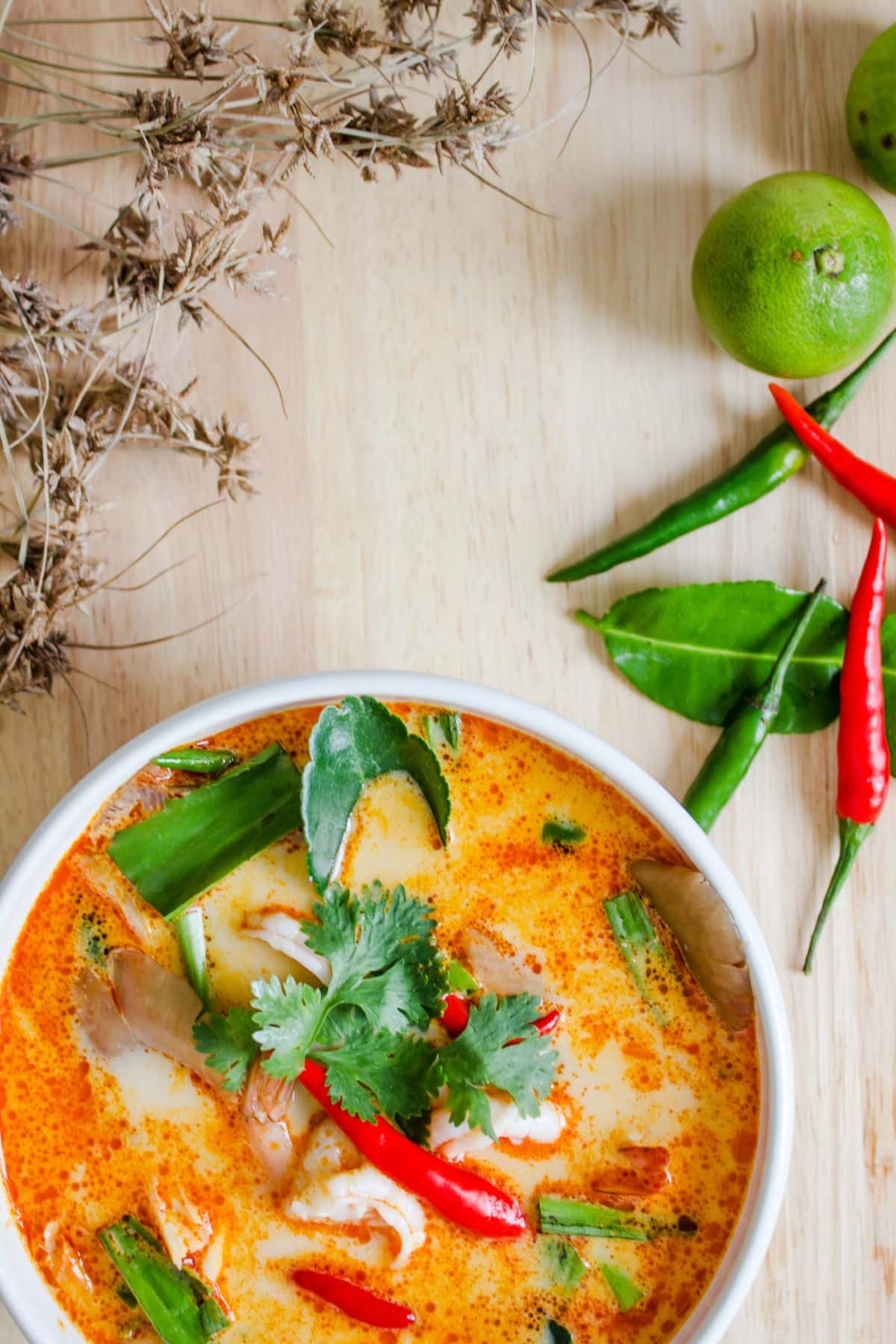
Thai Food Overview
Thai food is cuisine typically eaten in Thailand and served in Thai restaurants worldwide.
Thai dishes are lightly prepared with strong aromatic components, a complex flavor profile, and a spicy edge. Neighboring countries like India, Cambodia, Malaysia, and Indonesia influence it.
There are seven distinct Thai cuisines based on different regions, and there are various traditional Thai categories, including boiled dishes, spicy salads, pounded foods, and curries.
There are also deep-fried, stir-fried, and steamed Thai food dishes that are inspired by Chinese cuisine.
No matter what flavors you prefer, there is likely a Thai dish for everyone. In this article, I’ll point out in particular which items you can order in a Thai restaurant that are a healthy option.
Some of the most popular Thai dishes you may have heard of or eaten are:
- Tom Yum Goong – a spicy soup that contains shrimp
- Phad Thai – a fried rice noodle dish with peanuts and egg
- Som Tum – a spicy salad made from green papaya
- Phad Krapow Moo Saap – a fried pork dish flavored with basil
- Tom Kha Kai – a chicken and coconut milk curry
- Khao Pad – a fried rice dish made with Jasmine rice
Healthiest Ingredients in Thai Food
Here are five of the most common ingredients that give Thai food its complex and delicious flavor profile.
Galangal
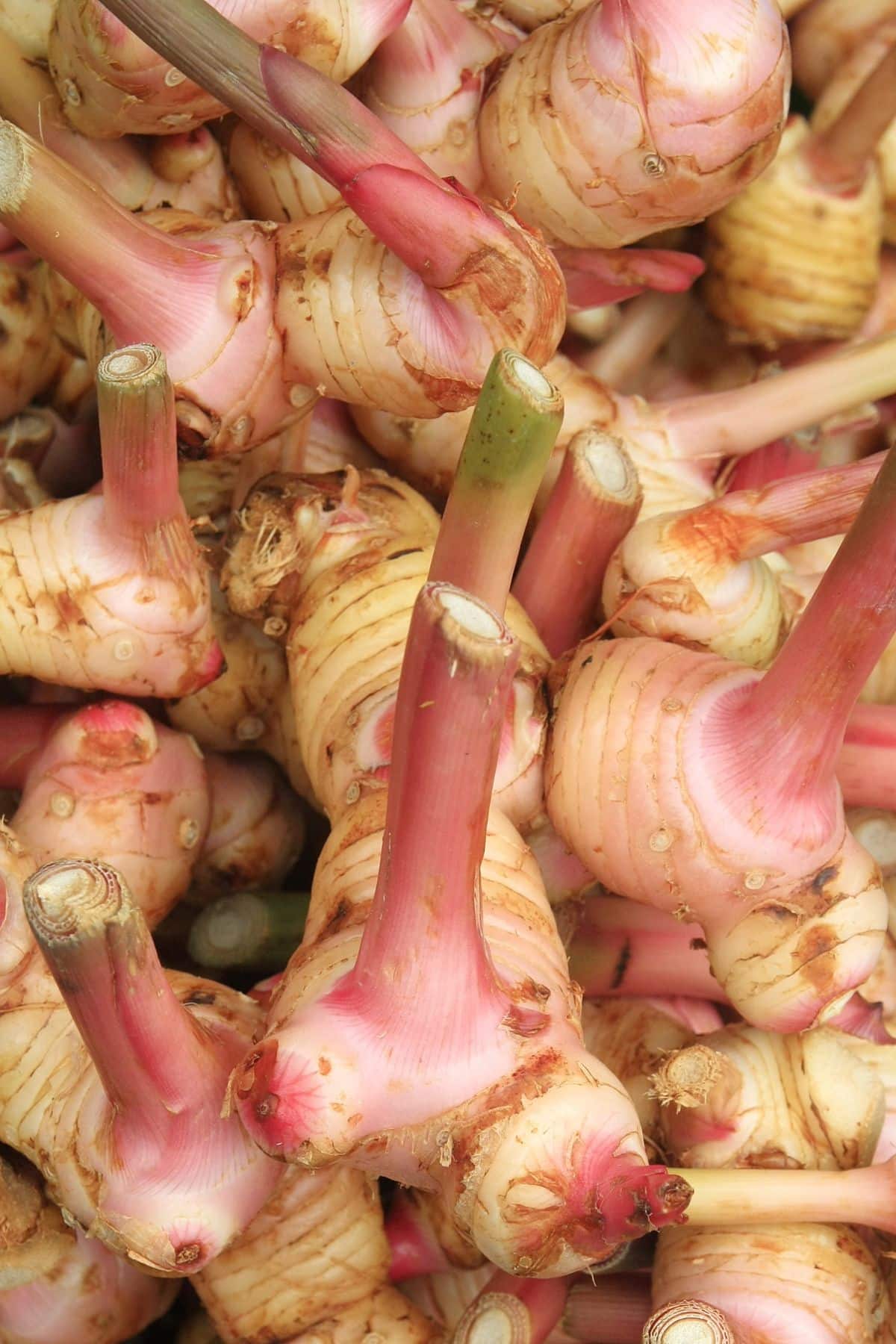
Although galangal is of the same family as ginger, it has a different flavor. It’s milder than ginger and has a citrus-like, peppery undertone.
Like ginger, galangal has fantastic health benefits – studies show that it may be beneficial in cancer treatments. It is a great option to add to Thai curries on a Thai menu.
Thai chefs typically use galangal in fried rice, stir-fries, and soups. To get the authentic Thai flavor, you can’t substitute it with ginger or anything else; it has to be the real deal.
Fish Sauce
Known as the backbone of Thai cooking, fish sauce salts Thai food and imparts an umami flavor. It is made from salted and fermented oily fish like mackerel or anchovies and has a unique and intense salty, sweet, and savory taste.
If a recipe calls for fish sauce, but you have a fish allergy or follow a vegan diet, you can use coconut aminos, soy sauce, or tamari as a substitute or great option. However, it won’t give the same flavor as fish sauce.
Coconut Milk
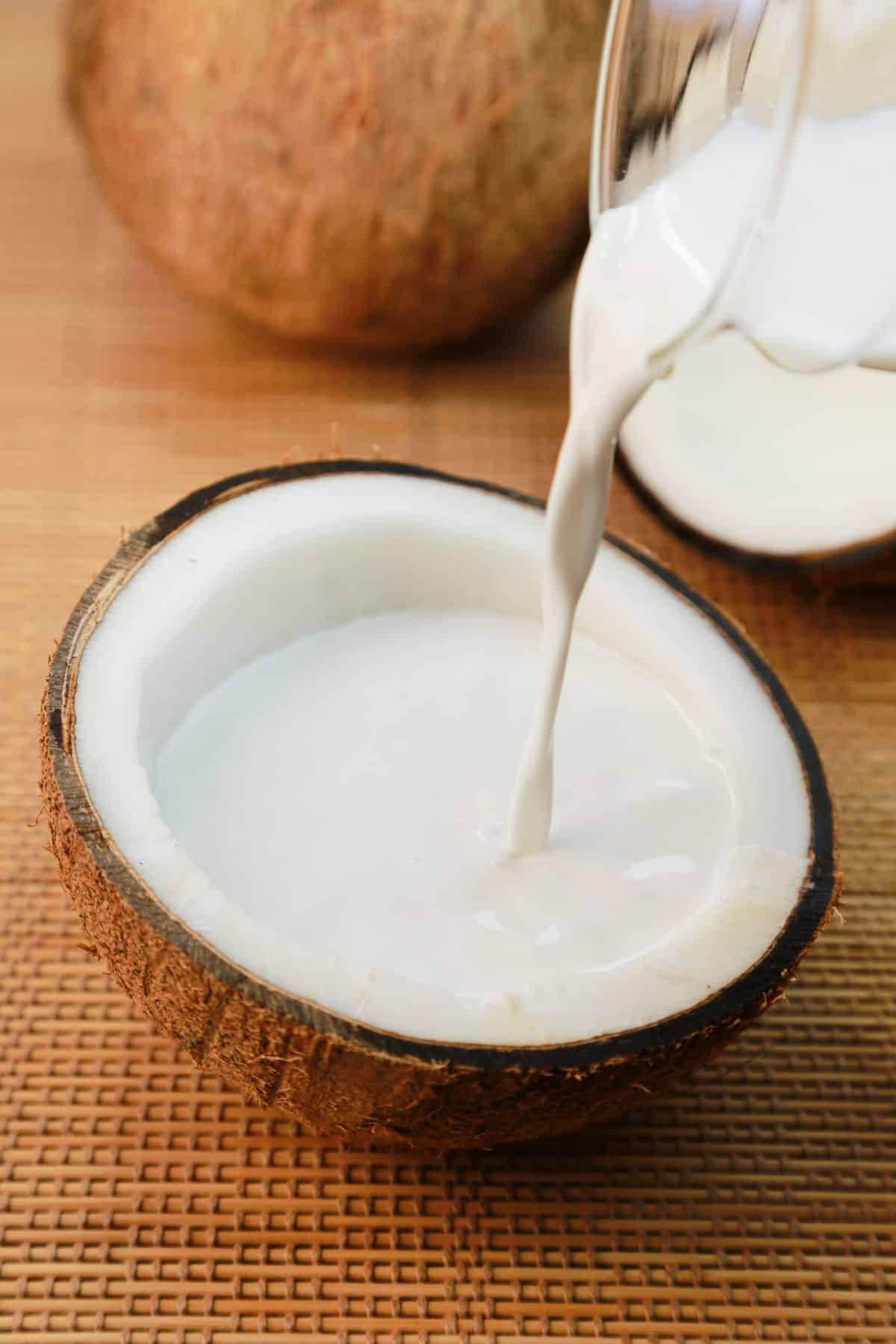
Many Thai soups and curries require coconut milk, and there’s no real substitute for it. It provides balance and a lush texture and slightly cools spicier dishes.
Coconut milk is made by finely grating coconut flesh and boiling it in water before straining it. It is high in healthy fats and an excellent ingredient if you want to add creaminess to a dish without using dairy.
I personally love using coconut milk as the base for Tom Yum soup or items like green curry.
Fresh Herbs
The most common herbs in Thai cooking are fresh Thai basil, lemongrass, and cilantro.
Dried herbs are not a suitable substitute but can be used in pinch. Thai basil has a sweet anise-like flavor. You can substitute it with regular or holy basil, which will only slightly alter the taste.
Lemongrass is an aromatic herb with a fragrant, citrusy taste. It stands up to longer cooking times, making it perfect for curries and soups. Thai cuisine uses both cilantro leaves and roots for different purposes. It provides freshness and a floral element to dishes.
Thai cuisine may also include herbs like kaffir lime leaves as an ingredient or garnish.
Allium Vegetables
Shallots, scallions, onions, and garlic are all allium vegetables essential to Thai cuisine.
They are used raw, cooked, crunchy, or soft and provide various intense flavors.
Other typical ingredients and fresh ingredients used in Thai cuisine can include:
- Tamarind
- Lime and lime leaves
- Bird’s Eye chile
- Shrimp paste and dried shrimp
- Soy sauce
- Spices like peppercorn, black cardamon, fennel, and cumin
- Rice noodles
- Jasmine rice
- Lime juice
- Brown rice
- Bean sprouts
- Palm sugar
- White rice
- Bamboo shoots
- Chili peppers
There are so many amazing and healthy ingredients used in Thai cuisine. It is a shame that some chefs and recipes call for unhealthy ingredients such as seed oils or too much sugar.
If you want to try and make your own healthy Thai food at home, be sure to pick recipes where fresh vegetables are the main ingredient. Try to avoid using oils and be sure to watch portion sizes.
Also, stick to using lean proteins and always opt for adding extra vegetables, especially if you are on a weight loss journey.
Nutrition Pros
- Thai cuisine uses a lot of fresh produce, lean protein, and fresh herbs.
- It’s usually dairy-free and can be made gluten-free with a few easy swaps. Some dishes are prepared in a wok which is fast cooking over high heat with very little oil, which helps conserve nutrients.
- Some of the typical ingredients in Thai food have excellent health benefits. For example, lemongrass is high in antioxidants, iron, and potassium, and lime is an excellent source of vitamin C and can help prevent kidney stones.
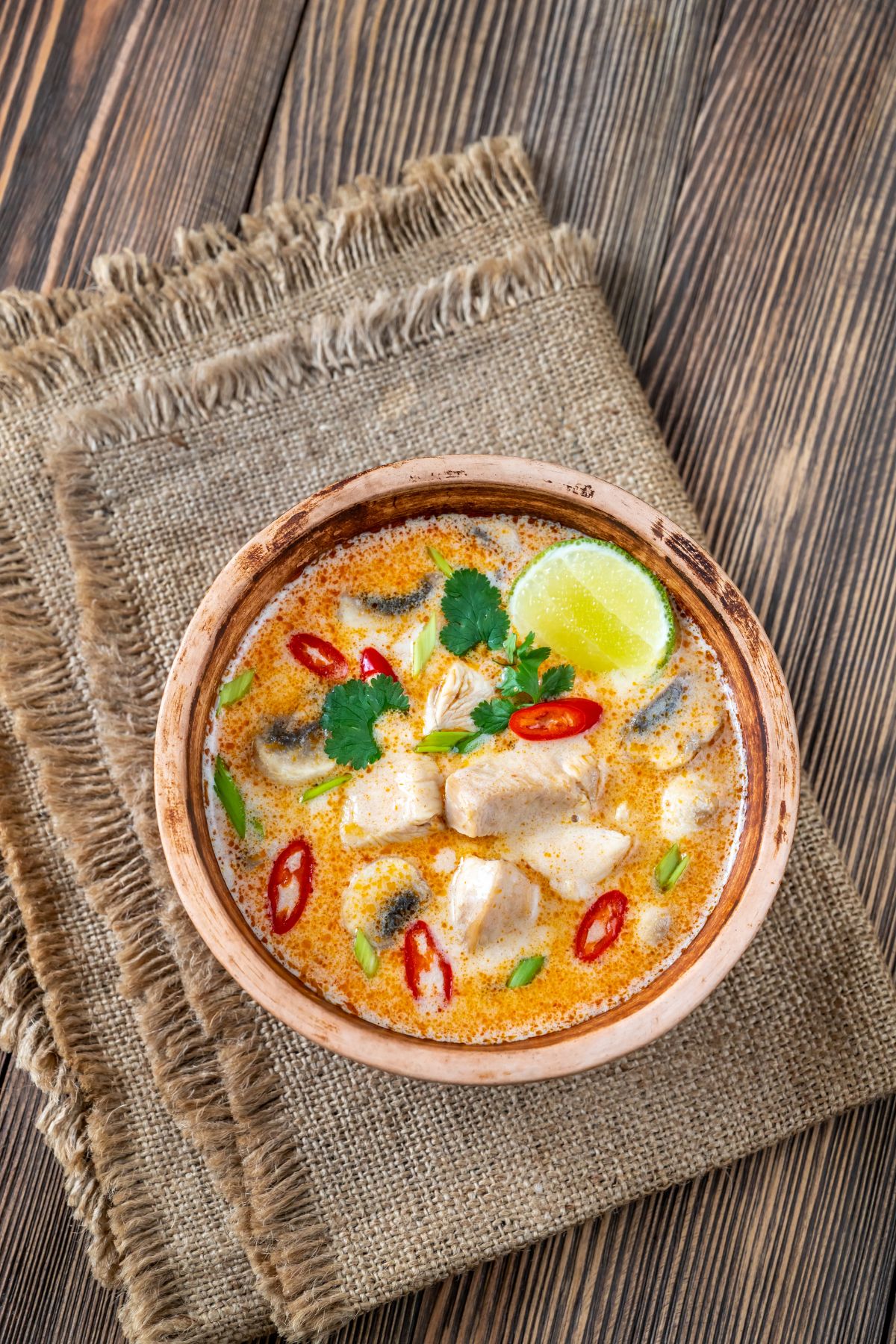
Nutrition Cons
- While traditional Thai food does not contain dairy and is naturally sweetened, the Americanized versions of Thai food often include excessive amounts of processed sugar and vegetable oils or even unhealthy dishes that are not really part of Thai cuisine, like cream cheese wontons.
- Some people only order or make deep-fried Thai dishes and neglect the healthier options. Deep-fried foods have been linked to many health problems.
FAQs
Yes, as long as it is traditionally prepared and contains fresh ingredients, many traditional Thai dishes such as summer rolls and green papaya salad are very healthy.
However, it’s essential to consider where the Thai food comes from and what ingredients the people preparing it use. Some restaurants use unhealthy oils and excessive sugar or prepare unhealthy Thai-inspired dishes.
For example, most restaurants add way too much sugar in dishes like pad thai.
Yes, most traditional Thai food is naturally dairy free. In the old days, Thai people didn’t raise cows or drink cow milk. Since coconut trees are found all over Thailand, they used coconut milk instead!
It’s important to note that even though traditional Thai food is dairy-free, some Thai restaurants will use dairy cream or milk products for added creaminess.
It’s also not typically vegan because many recipes call for fish sauce. For Thai food to be vegan, substitute the fish sauce for soy sauce, tamari, or coconut aminos.
Yes, you can! Making healthy Thai food is super easy. Since many traditional Thai dishes are healthy, all you have to do is stick to those recipes and use real food and unprocessed ingredients. Some of the healthiest Thai dishes are the simplest and the tastiest.
Don’t Miss These Nutrition Articles
Conclusions
Traditional Thai food is fresh, delicious, and can be super healthy. It contains fresh veggies and herbs and lean meats and fish. Most Thai dishes can easily be prepared gluten-free. It’s important to note that even though traditional Thai cuisine is mostly healthy, some restaurants add dairy, vegetable oils, and sugar to Thai-inspired dishes making them less healthy.
Don’t forget to join my newsletter list to get exclusive clean eating recipes and tips. The newsletter is 100% free with no spam; unsubscribe anytime.
About the Author: Carrie Forrest has a master’s degree in public health with a specialty in nutrition and is a certified holistic nutritionist. She is a top wellness and food blogger with over 5 million annual visitors to her site. Carrie has an incredible story of recovery from chronic illness and is passionate about helping other women transform their health. Send her a message through her contact form.
Note: this post is for informational purposes only and is not intended as medical advice. Please consult your healthcare provider for recommendations related to your individual situation.


